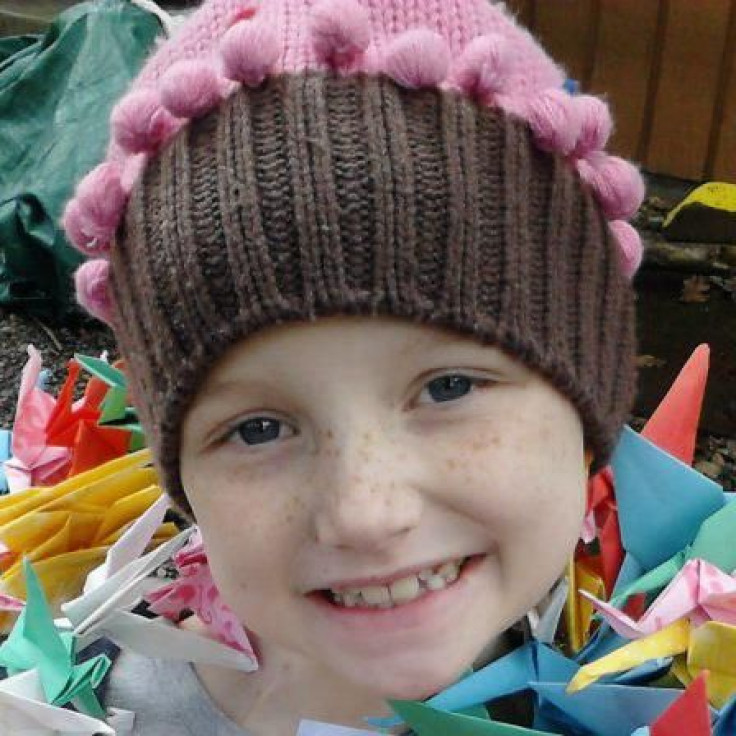Debate: Should a Seven-Year-Old Child Be Allowed Medical Marijuana?

Mykayla Comstock was diagnosed with a particularly aggressive form of leukemia last year. Comstock is one of 2,201 cancer patients licensed in the state of Oregon to use medical marijuana. She takes the drug in a pill twice a day and, if she is feeling particularly lousy, she consumes a ginger snap cookie or a brownie baked with marijuana-laced butter. Some days, she can have as much as 1.2 grams of cannabis oil during a 24-hour period, the approximate equivalent of 10 joints.
Mykayla Comstock is seven years old.
Comstock is finding herself at the center of a whirlwind of a new debate. Though Americans are increasingly in favor of allowing the use of medical marijuana, medical marijuana laws highlight the confusion that many members of the public feel when states allow parents to choose whether the drug can be administered to children.
Comstock is one of 52 children who are enrolled in the Oregon Medical Marijuana program, which is open to children who have an approved medical condition and approval from parents and doctors.
Oregon's law does not require the administration of marijuana to be supervised by a pediatrician. It leaves parents to decide on the frequency and potency of dosages. The law also does not impose standards on the quality of the drug.
Mykayla was diagnosed with T-cell leukemia, an aggressive form of a cancer that affects 10 to 15 percent of the 3,800 American children who are hit with the disease each year. With chemotherapy, doctors put her chance of survival at 76.9 percent and a 7 percent chance of relapse.
Comstock's mother, Erin Purchase, a medical marijuana patient herself, swears by the treatment, however. She credits cannabis oil with curing her stepfather's skin cancer. She says that it helps her daughter sleep and treats nausea, depression, pain, and vomiting, allowing for her daughter to be a child again. Purchase also says that, in addition to the management of her symptoms, the drug helped Comstock go into remission a month into chemotherapy treatments. She is so confident about the safety of marijuana that she took the drug during her second pregnancy and while breastfeeding her second child. Her boyfriend serves as Mykayla's grower.
Purchase's ex-husband and Mykayla's father, Jesse Comstock, is less enthused about the therapy, however. During a visit to see his daughter in August, he found Mykayla to be lethargic, not wanting to do anything besides play video games. Though he contacted the police and her oncologist, he was told that there was little recourse for him. Comstock has previously used the drug and does not oppose the use of marijuana in people over the age of 16, but he worries about the perils of addiction and says that doctors are not sure about the effects that marijuana can have in developing brains.
In fact, Mykayla's first doctor at Legacy Emmanuel's Randall Children's Hospital said that the use of the drug was inappropriate. The family has since switched oncologists to Dr. Jason Glover at the same facility.
Purchase says that Mykayla will decide for herself when she wants to stop taking marijuana. In the meantime, she hopes that other parents will not judge her for decisions made when her daughter was hovering between life and death.
"As a mother," she said to The Oregonian, "I am going to try anything before she can potentially fall on the other side."
MyKayla's mother maintains a Facebook page intended to spread information about her daughter's condition and the benefits of medical marijuana.



























